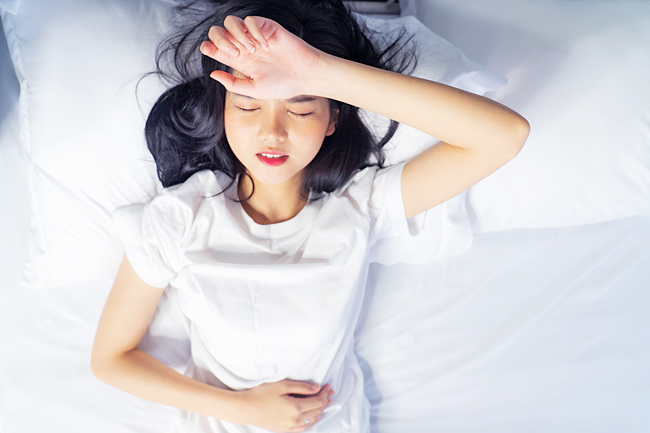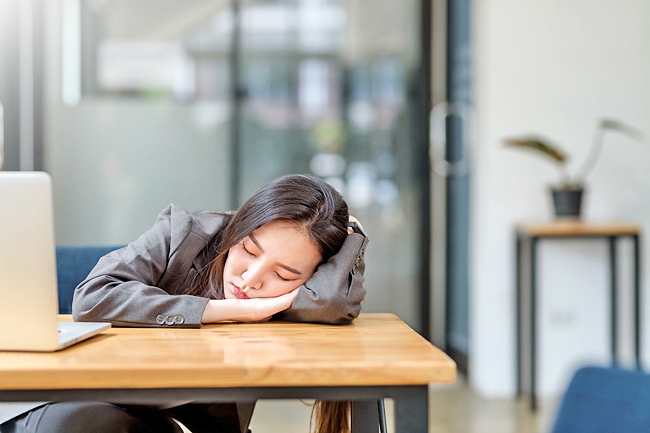CNA/NEW YORK TIMES – Trouble falling or staying asleep is common, especially as you age. And for women, research suggests, the difficulties can be even greater.
According to a recent poll by the National Sleep Foundation, women were significantly more likely than men to report challenges falling and staying asleep.
Such troubles can emerge during puberty and continue throughout adulthood, said director of the Human Sleep Research Programme at SRI International Fiona Baker, a non-profit research institute based in Menlo Park, California.
And they can be caused by a range of factors, including biological, psychological and social ones, experts said. The good news, though, is that there are things you can do to help.
WHAT’S BEHIND WOMEN’S SLEEP ISSUES?
Throughout the reproductive years, Dr Baker said, hormonal changes during the menstrual cycle can cause mood changes (such as anxiety and depression) and physical symptoms (like cramps, bloating and tender breasts), which all may disrupt sleep.
Symptoms during pregnancy – such as nausea, the frequent urge to urinate, anxiety and general discomfort, depending on the trimester – can also trigger sleep disturbances, said clinical associate professor of neurology and psychology at the Albert Einstein College of Medicine in the Bronx Shelby Harris. This is especially true during the first and third trimesters, she said.


Then, of course, there’s the sleep disruption that comes with caring for a newborn, Dr Harris said – which can continue long after the baby is sleeping through the night. Sometimes, women’s “brains are almost trained to hear the baby,” she said, which can lead to a pattern of hypervigilance and responsiveness that can make it harder to sleep.
Hormones again take centre stage during the years leading up to – and beyond – menopause. Up to 80 per cent of women start getting hot flashes in perimenopause (the four or so years leading up to menopause) and may continue to get them for as many as seven years afterward, Dr Baker said. For about 20 per cent of women, though, these hot flashes are frequent and intense enough to disrupt sleep, she said.
Postmenopausal women are also at higher risk for developing obstructive sleep apnoea, which occurs when the muscles of the airway relax and temporarily impede breathing, which can lead to frequent nighttime awakenings.
“That’s the hormones again,” Dr Baker said. Weight gain related to menopause and ageing may also play a role in sleep apnoea risk, along with muscle-tone changes associated with age and a general redistribution of body weight.
Women are also at increased risk for certain mental health conditions, such as anxiety and depression, which can exacerbate sleep issues. According to a Gallup poll released in May, the percentage of women who said they currently had or were being treated for depression was over twice as high as that of men.
And the Department of Health and Human Services said that women are more than twice as likely as men to be diagnosed with an anxiety disorder during their lifetimes.
Fortunately, effective solutions are available, Dr Harris said.
Cognitive behavioural therapy for insomnia, or CBT-I, is widely recognised as the best first-line treatment, she said.
HOW TO GET BETTER SLEEP
It’s been shown to improve sleep and reduce depressive symptoms by using a range of cognitive and behavioural techniques, such as identifying and reframing negative thought patterns, practising mindfulness, tracking sleep and changing bedtimes, Dr Harris said.
Hormone replacement therapy, which involves supplementing hormones lost during the menopausal transition, is considered the most effective way to treat hot flashes, Dr Baker said.
That said, current recommendations are “to take the lowest dose for the shortest amount of time”, Dr Baker noted, because the treatment can come with risks.
Finally, it’s important to recognise that it’s normal for sleep to vary – from night to night or person to person.
And waking up after you’ve fallen asleep doesn’t necessarily mean there’s a problem.
“Everyone wakes in the middle of the night,” Dr Harris added, “just some people remember it more than others.”
If you wake once or twice at night and are able to fall asleep again in 10 to 15 minutes, that’s not problematic, she said.
But “if you have trouble falling asleep, staying asleep or awakening too early, or if you feel like your sleep is unrefreshing”, she recommended seeking help.
The Society of Behavioral Sleep Medicine maintains a list of CBT-I. trained specialists, Dr Harris said, and the North American Menopause Society has a database of health care providers who are well versed in perimenopause care. If you’re concerned about sleep apnoea, seek out a sleep medicine specialist, she said.
Above all, Dr Harris said, “don’t suffer in silence.”





